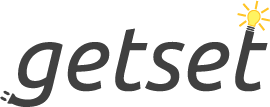
Getset is a non-assessable competencies quiz for incoming First Year students at university to raise students’ awareness of academic expectations and alert them to gaps in their knowledge. Getset measures a number of cognitive and non-cognitive factors shown to be significant predictors of academic success and provides individualised feedback to students.
The quiz focuses on Mathematics, Physics/Mechanics, and Chemistry. Upon completion students receive an individual matrix report showing their knowledge mapped against the prerequisite knowledge for a number of courses. They also receive suggestions for learning resources and support sessions to help them get a good start.
Academics teaching first year course receive aggregated results for the entire cohort to aid preparation.
| Title | First Name | Last Name | Affiliation | Role in the project |
Contact |
|---|---|---|---|---|---|
| Professor | Lydia | Kavanagh | Faculty of Science | Lead CI | l.kavanagh@uq.edu.au +61 7 3365 4264 |
| Dr | Liza | O'Moore | Faculty of EAIT/ School of Civil Engineering | Lead CI | l.omoore@uq.edu.au +61 7 3365 3899 |
| Mr | Michael | Jennings | School of Mathematics and Physics | Lead CI | msj@maths.uq.edu.au +61 7 3365 3255 |
| eLIPSE | Software development team | elipse@eait.uq.edu.au +61 7 334 68018 |
The project is complete but an upgrade to a new platform is schedculed for 2022. The tool is being used across disciplines at UQ.
If you would like to run a Getset quiz, you can link to the demo site here. When creating a new account, your username should commence with uq, followed by up to 6 characters. The email address should be your username plus @uq.edu.au. Having set a password, you can then log in to the demo site.
Drupal, JavaScript, PHP
Grants:
Lydia Kavanagh and Liza O'Moore. Get set for success: Using online self-assessments to motivate first year engineering students to engage in and manage their learning (2012–2013). Funded by Australian Government Office for Learning and Teaching (OLT).
Michael Jennings. Not just Another Diagnostic Test! Extending Get Set resources into new contexts under the Promotion of Excellence in Learning and Teaching in Higher Education programme (2014–2015). Funded by an Office of Learning and Teaching Extension Grant.
Material for this quiz came from the following sources:
Burton, Lorelle and Dowling, David and Albion, Majella (2013) Get set for success: using online self-assessments to motivate first year engineering students to engage in and manage their learning. Project Report. Australian Government Office for Learning and Teaching, Sydney, Australia.
Burton, Lorelle, Dowling, David, Kavanagh, Lydia, O'Moore, Liza, and Wilkes, Janelle (2012). Examining First Year Students’ Preparedness for Studying Engineering. 23rd Annual Conference of the Australasian Association of Engineering Education (AAEE 2012), Melbourne, Australia, Swinburne University of Technology, Melbourne, Australia. 3-5 December 2012.
Burton, Lorelle, Dowling, David G., Kavanagh, Lydia, O'Moore, Liza, Aubrey, Tim, Lowe, David, Wilkes, Janelle, Glencross-Grant, Rex and McBride, William (2012). Get set for success: an update on EngCAT Project. Proceedings of the 23rd Annual Conference of the Australasian Association of Engineering Education. Swinburne University of Technology, Melbourne, Australia. 3-5 December 2012.
Shepherd, Martin, McLennan, Amy, Kavanagh, Lydia and O'Moore, Liza (2011). Ready for first year? The use of pre-teaching diagnostic tests to prompt greater preparation and engagement among first year engineering cohorts at The Universities of Auckland and Queensland. Proceedings of the 22nd Annual Conference for the Australasian Association for Engineering Education. Fremantle, Australia, (582-587). 5-7 December 2011.
Jennings, M. (2011). The transition from high school to university: The University of Queensland perspective. 8th Southern Hemisphere Conference on Teaching and Learning Undergraduate Mathematics and Statistics. Rotorua, New Zealand. 27 November-2 December 2011.
Kavanagh, L., O’Moore, L., & Samuelowicz, K. (2009). Characterising the first year cohort knowledge. Proceedings of the Australasian Association of Engineering Education Conference, Adelaide, Australia. 6-9 December 2009.